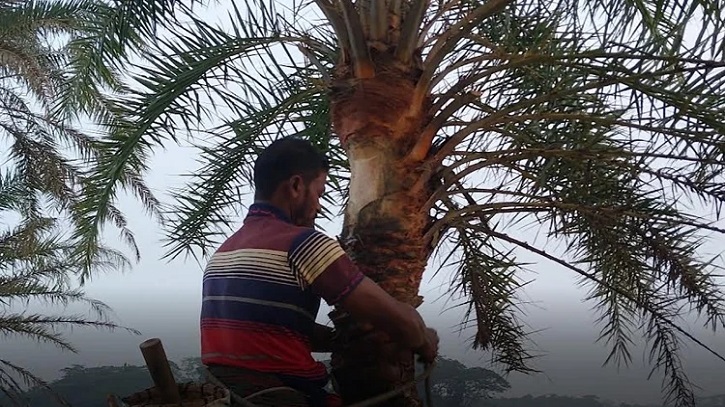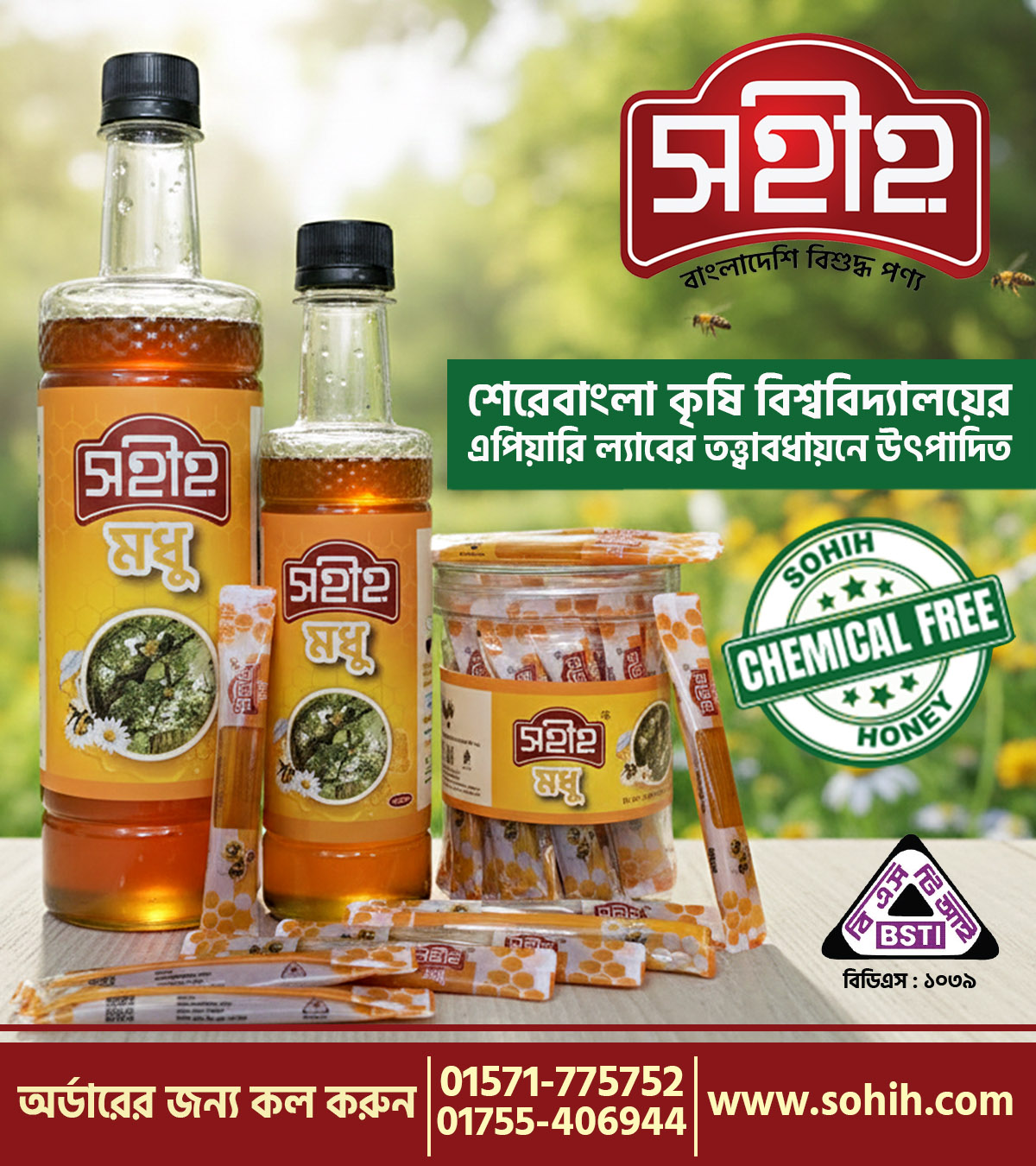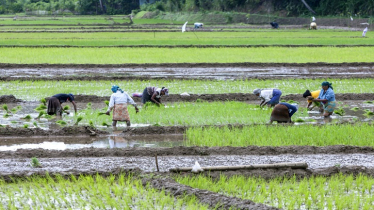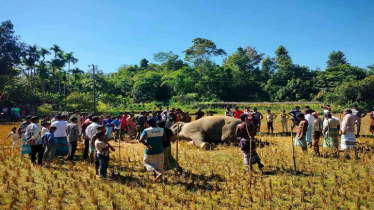
The people of Patuakhali fear the gradual disappearance of a long-cherished winter tradition as date-palm sap production continues to decline across the district. Field-level data from different upazilas indicate that the number of date-palm trees in the southern region has dropped by nearly half over the past decade. As a result, the production of winter delicacies such as raw date sap and jaggery has decreased sharply, causing a supply shortage in local markets. Despite rising demand, growers say reduced output has significantly lowered their profits.
According to the latest data from the Department of Agricultural Extension (DAE), Patuakhali currently has 128,035 date-palm trees. In the last season, only 4.1 metric tons of jaggery were produced. Officials note that the comparatively low amount of jaggery is partly due to a significant portion of the collected sap being sold directly in the market.
Abdul Karim, a grower from Bauphal upazila, said he once harvested 15 to 20 litres of sap per day from his 30 to 35 trees. Now, even after tapping 16 trees, the daily yield has dropped to just 4 to 6 litres. He said the price of sap has risen to Tk 100–120 per litre from Tk 50–60, but declining production has reduced profit margins considerably.
In Dashmina upazila, experienced tapper Shamsul Howlader recalled that he once produced 200 to 250 kilograms of patali jaggery in a single season. This year, production has fallen to only 50 to 70 kilograms. Although patali now sells for Tk 300–350 per kilogram and nolen jaggery for Tk 450–500, limited supply is hampering their business activities.
Shamim Mridha, a young grower from Kalapara, said that three major products are made from date sap: nolen jaggery, patali jaggery and date sugar. Despite increasing demand, a shortage of skilled tappers and reduced sap availability are preventing any growth in production.
Alam Khan, a jaggery producer in Galachipa, said they previously made 8 to 10 kilograms of nolen jaggery per day but can now produce only 2 to 3 kilograms. Wholesalers from Dhaka and Barishal place advance orders, he said, but the reduced supply of sap makes it impossible to meet the demand.
Small-scale grower Rokun Uddin from Mirzaganj said he once had over 30 date-palm trees, but now only eight remain. Seasonal income has dropped to nearly half due to declining production.
Local growers and producers believe that controlling salinity, planting new trees, providing modern training for tappers and improving market management can help revive date-sap and jaggery production in the region.
Rabeya Khatun Kochi, assistant teacher at Bauphal Daspara Model Government Primary School, said date-palm sap production is an integral part of the winter tradition. She said the shortage of skilled tappers has become a major concern. Many trees remain untapped despite being suitable, she added, warning that future generations may never know the authentic taste and experience of fresh date sap if the situation continues.
Kamaruzzaman Bacchu, former president of the Bauphal Press Club, said the declining production of date sap threatens not only farmers and producers but also the local economy and cultural heritage. He stressed that without coordinated government initiatives, preserving this tradition will be difficult.
Bauphal Upazila Agriculture Officer Md Milon said increasing salinity levels in coastal areas and high mortality rates among neglected trees are the primary reasons behind the decline. A shortage of skilled tappers is also a major obstacle. He said farmers are being encouraged to plant new trees and training programmes for tappers are planned for the next season. He added that using modern pipeline-based extraction methods could increase sap collection by 20 to 30 percent.
Bauphal Upazila Nirbahi Officer Aminul Islam said the local administration, in coordination with the agriculture department, is running various support and incentive programmes to sustain date-palm cultivation. Assistance will be provided for new tree plantation, production enhancement and training activities, he added.
Deputy Director of Agriculture Dr Md Amanul Islam said people no longer plant date-palm trees deliberately, and most now grow naturally. Many trees are lost due to a lack of proper tapping techniques, he said. Rising fuel costs have also made jaggery production more expensive. Unable to secure fair prices, many tappers now prefer selling raw sap instead of making jaggery, placing the traditional jaggery-making process at risk. He said new tree plantation is essential for preserving this heritage, and the government is already implementing various incentive schemes to promote plantation activities.





